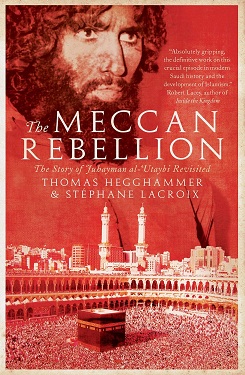Is there truth in victory?
Friday, August 2nd, 2013[by Lynn C. Rees]
Things change. Beliefs don’t. Facing change, belief clings to the agreeable and resists the disagreeable. Current fashion names this reflex “confirmation bias” and frames it as the enemy of truth. Closer truth names this reflex “concentration of force” and portrays it as the friend of victory.
The notion that discovery of truth is an individual effort persists. By this notion’s curiously resilient lights, the only truthful mind is a blank mind. Purge existing beliefs. Capture change free of entanglements. Embrace blindness to see clearly. Above all, lean neither one way nor the other. Only then, after much trial, with the last mental debris bulldozed away, will light come.
No one thinks like this. Despite the occasional brave try, everyone reflexively favors things that fortify belief over things that undermine belief. If truth is a self-help exercise, the existence of confirmation bias means the mind is inescapably flawed. If truth is trial by self-improvement, the only cure for mind flaws is constant reinforcement of what human history suggests is impossible. And if reinforcing the impossible only leads to more impossibility, at least it leads to an impossibility redeemed by its righteous aggression.
And so it would be, if leaving a vacuum and calling it truth is truth. But if truth comes from group contortion rather than individual self-flagellation, confirmation bias is a feature, not a bug. Then the mind is not flawed, at least not in that way. If the mind was guilty of chronic confirmation bias, it would only be guilty of operating to spec.
Those who insist on convening a symposium for a full and frank exchange of views every time they come under fire rarely need a good retirement plan. Because of this, to enforce effectiveness under fire, Darwin decrees that the mind comes preloaded and then preloaded with live ammunition, not blanks. Beyond this, freedom to arbitrarily switch the caliber of mental ammunition mid-stream is sacrificed for clarity of supply: mind yields measured in thoughts per calorie rise when ideas are bought in bulk following spec, especially amid uncertainty in the field.
Because buying ideas in bulk creates economies of scale, if confirmation bias is bias confirmed then it is bias shared. At the tribal scale, where human routine plays out, bias shared is indistinguishable from agreement. It too is guilty of operating to spec: Agreement reduces friction. Reduced friction lets group efforts prioritize targets. Prioritized targets let group effort selectively focus. Selective focus creates opportunities for local asymmetries. Local asymmetries can be exploited to further the tribe.
This makes confirmation bias concentration of force. Concentration of force is biased, first in favor being very strong and then at the decisive point. But it is confirmed only when being very strong and then at the decisive point yields victory. Local superiority in strength at a decisive point is neither constant nor guaranteed: it is only guaranteed to not be constant. So the mind must stay on target: it earns its keep by concentrating for victory, not emptying for truth.
This explains why what humans experience as “me” is a social loop: it is a argument simulator for forging chatter into weapons through endless drill of imagined conversations. It’s a display device, not a thinking machine. The thinking machine lies deep in the mind: real thought emerges from offline processing, especially during sleep. Conscious “me” is suited to rehearsing if small variations in action lead to opportunity through asymmetry. These variations are what gets flung at others as weaponized chatter. Some variations stick, leading to victory. Some miss, leading to defeat. Some should only be flung if clearly labelled FOR ENTERTAINMENT PURPOSES ONLY.
Truth emerges from accumulations of such victories piled on mass burials of such defeats. It is an unintended byproduct, not an intended end product. But its emergence reaches back to shape its source. Generation by generation, the mind is doomed to more and more bias in favor of weaponized thought measured in victories confirmed, always subject to how well they fit, however haltingly, what is true.
So things change while beliefs don’t. Confirmed truth is biased toward victory and victory is biased toward agreements with friends to win something with something rather than lonely pursuit of nothing through nothing.
See the argumentative theory of reason for more background on this framework.



